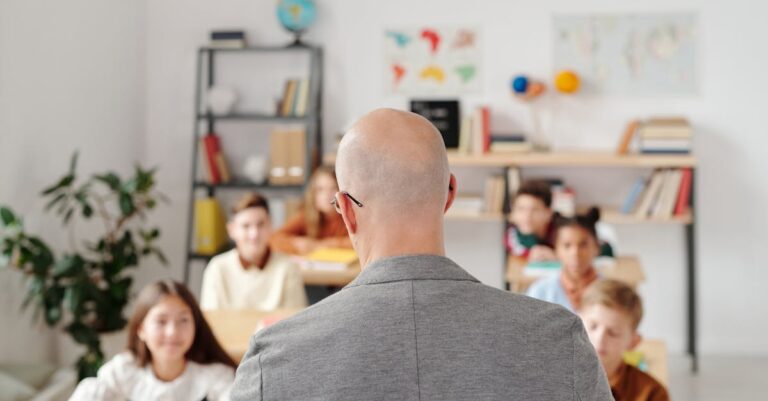
In recent years, the issue of book bans has sparked heated debates across the United States, with various counties taking decisive actions to restrict or outright ban certain books from school libraries and curriculums. In Northern Florida, particularly in Clay County and Flagler County, this controversial practice has drawn significant attention and raised concerns about academic freedom, censorship, and the future of education.
Clay County, situated in North Florida, has recently made headlines for its decision to remove selected books from school libraries, citing concerns over the content’s appropriateness for young readers. The move has ignited a passionate discourse among educators, parents, and community members, with many criticizing the ban as an infringement on intellectual freedom and diversity of thought.
Flagler County, another prominent area in North Florida, has also faced its share of challenges regarding book bans. In an effort to protect students from perceived objectionable material, school officials have imposed restrictions on certain literary works, leading to contentious debates about the boundaries of censorship and the implications for academic discourse.
The controversy surrounding book bans in these counties reflects a broader trend in the United States, where ideological and cultural differences often clash over what should be deemed acceptable or inappropriate in educational settings. Critics argue that book bans not only stifle students’ access to diverse perspectives and critical thinking but also pose a threat to the principles of academic freedom and democracy.
Proponents of book bans, on the other hand, argue that certain materials may contain themes or language that are unsuitable for young readers and should be regulated to uphold community standards and values. They contend that restricting access to controversial content is a necessary measure to protect students from potentially harmful or offensive material.
However, the implications of book bans extend beyond the educational realm, touching on fundamental rights and freedoms guaranteed by the Constitution. By censoring certain books and restricting access to information, communities risk undermining the principles of free speech, inquiry, and expression that form the cornerstone of a vibrant democracy.
In conclusion, the issue of book bans in counties like Clay County and Flagler County underscores the complex interplay between education, censorship, and democracy. As debates continue to unfold and decisions are made regarding which books are deemed appropriate for student consumption, it is essential for stakeholders to engage in constructive dialogue, respect differing perspectives, and uphold the values of intellectual freedom and academic inquiry. Only through a balanced and inclusive approach can we navigate the challenges posed by book bans and ensure that education remains a beacon of enlightenment and empowerment for future generations.








Omg, like seriously, book bans are so not cool, man. Kids need to read and learn and stuff. Why you gotta take away their books? It’s like, let them explore and think for themselves. Censorship is like putting a lid on a boiling pot, you know? We gotta let ideas flow and mix
OMG, book bans? Seriously, like, why are we
ugh book bans seriously? why they gotta be banning books like that? i get it, maybe some books ain’t for everyone but come on, let kids read and learn from different perspectives! it’s all about freedom and stuff, we gotta let ideas flow and not block them off. banning books
Oh wow, because clearly the best way to protect our precious little children is to shield them from any form of challenging or controversial
Wow, book bans are like, such a hot topic right now. It’s crazy how some places in Florida are banning books from schools. I think we should all be able to read whatever we want,
political correctness has gone too far, these books are important for students to learn from and banning them is just not right. i dont like censorship at all, its like limiting our knowledge and freedom of speech. we should be able to read what we want and have open discussions about it. its a slippery slope once we start banning things, where does it end? we need to protect academic freedom and let students
wow, banning books in schools? that’s like trying to stop the sun from shining! we gotta let those kids read and learn, even if the books have some funky stuff in them. we need diversity of thought and perspectives, not just the same old boring stuff.
Yo, like what’s up with folks trying to ban books? I mean, books are like windows to different worlds, man. They help us see things from different perspectives and expand our
Wow, this is a really important topic. I think that it’s super crucial to have a diverse range of perspectives available to students because it helps them grow and learn about different viewpoints. Book bans can
oh man… these book bans are like really sad, you know? like, why can’t we just let people read whatever they want? it’s like, stifling creativity and stuff. we gotta protect intellectual freedom and diversity of thought, man. but then again, i guess some books might not be good for kids,
its so sad that they be banning books like that. books are like windows to other
Ugh, book bans are so dumb! Like, why are we trying to control what people read? Don’t we want students to learn and think about different stuff? Censorship
Book bans? Seriously? I mean, come on, let people read what they want, right? We gotta protect freedom of speech and all that good stuff. It’s like, who decides what’s okay and what’s not? We should be encouraging different perspectives and critical thinking, not shutting them down. Let the kids read and learn, man. That’s how we grow
Book bans r not gud. kids ned to reed al kinds of stuff to learn bout the world. let them think and question and discuss. censoring books only maks them
Yeah so like, this whole book banning thing is just like, not cool, you know? I mean, we gotta let kids read whatever they wanna read, right? Censorship is
I can’t believe some people wanna ban books! Books are like, so important for learning and stuff. It’s like, taking away our freedom to learn cool things and have different opinions and stuff. Like, why are they trying to control what we read? It
book bands is a big deal in United States. some county in North Florida like Clay County and Flagler County are really banning certain Books in school cause they think it’s not good for young Reader. some people say that Book should be band
Hey y’all, why ban books when you can just put a sticker on them that says, “Warning: This book may cause
Whoa, banning books in schools? That’s like trying to ban pizza from a party – not cool, dude! We gotta let the kiddos read and learn all the things, even if it makes some adults uncomfortable. Education should be like a buffet, offering all kinds of dishes for the mind to feast on, not just the plain oatmeal stuff.